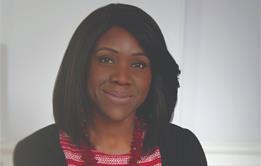This list celebrates the contribution of Black, Asian and ethnic minority staff working across the healthcare system.
Sponsored by
Our goal for acknowledging these figures is not simply embedded in morality, but because evidence tells us that diversity and inclusion lead to increased staff engagement, increased productivity and better outcomes for all patients. Surely, it’s an obvious and critical agenda for all senior leaders to invest in.
But despite the significant and ever-growing evidence base, senior leaders are often still nervous about committing to tackling the underlying causes of inequalities.
Last year, I said that we were far from “mission accomplished” on the race equity agenda, and that we needed a refreshed and explicit commitment to race equity. The 10-Year Health Plan, published earlier this year, and the forthcoming workforce plan, present a unique opportunity to achieve this.
Indeed, the 10-Year Health Plan’s goals and ambitions cannot be realised without the contribution of all healthcare staff – including the Black, Asian and ethnic minority staff who make-up nearly 30 per cent of the total workforce – and it’s for that very reason why the race equality agenda is not, and cannot, be divorced from the government’s core missions on health.
At the same time, we know working on and progressing equality is not a simple task – it’s possibly one of the most difficult tasks in healthcare, and perhaps why it’s one of its most long-standing challenges for the NHS. Historically, the NHS – as is with most other institutions – has had a cultural aversion to tackling the ‘causes of the causes’ of the inequalities that play out in the workforce and for our communities.
The fact is that racism exists across society, and the NHS (with close to a 1.6m workforce) is not immune to it. But, critically, the first step to any change is to acknowledge that there is, in fact, something to change!
That is exactly why, last year, the NHS Race and Health Observatory published its Seven Principles of Anti-Racism and launched the Health Action Resource Platform. These resources support leaders, organisations and systems to not only acknowledge the elephant in the room, but to begin the journey to do something about it – presenting evidence-based approaches to improvement.
And together we can go further and faster. We are bringing together the major healthcare regulators to focus on this agenda as a more robust and collective force for good, rather than individual organisations with often distinct and fragmented approaches.
The Observatory is also progressing on identifying the ethnicity pay and progression gap across the NHS workforce and presenting evidence-based solutions; it is working on closing the ethnicity gap in the experience of bullying and harassment across the NHS workforce and reducing overall levels across all staff.
As I always say, tackling inequality and discrimination cannot be the burden for those most impacted – it must be a shared endeavour for all; I’m hopeful that the latest changes across the healthcare system will enable us to achieve this.
My sincere thanks and gratitude to both the HSJ team and to our expert panel of judges for their support, input and insight.
The 50 most influential Black, Asian and minority ethnic people in health: Full list

The top 50 most influential Black, Asian and minority ethnic leaders in English health and care – listed alphabetically
- 1
- 2
 Currently
reading
Currently
reading
Now or never – leadership diversity across the NHS
- 4
- 5
- 6



































No comments yet